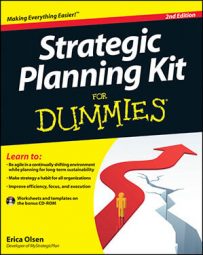Organizations don’t operate in an isolated pool with just their employees and their customers. Instead, companies and departments have relationships with the communities they operate in, governmental agencies, and partners such as other companies, industry associations, and maybe even competitors.
Your company may need to manage relationships with all or a few of these entities because everyone is a piece of the bigger picture. These relationships break down into the following areas and processes:
Environmental sustainability: If your company impacts the environment (what business doesn’t?), how effective are you at managing your resource consumption, water and air emissions, waste disposal, and overall environmental impact?
Employee well-being and compliance: How’s your employee health and safety performance? Are you efficiently taking care of your employees to minimize any safety accidents or repetitive stress injuries?
Community contributions: Are you investing in your community through nonprofit organizations or other community programs? Small organizations tend to take a hit-or-miss approach to this area, meaning that they don’t consistently contribute to an ongoing charity. Consider the time and energy savings with a consistent community outreach program.
Alliance management: Are you efficiently taking care of the organizations you work with? Do you have a consistent approach to managing these critical relationships? Are you effective with your alliance? In other words, are you working with the right ones?
Maximizing profits is just part of running a big business, according to John Mackey, co-CEO and cofounder of Whole Foods — the nation’s leading natural and organic grocery chain with $4.7 billion in annual sales. He feels there’s a larger trend toward businesses having a greater responsibility in society.
Employees, customers, and shareholders all want their businesses to be good corporate citizens. Mackey believes that profits and being a good citizen go hand-in-hand. He puts his money where his mouth is, with 5 percent of annual net profits going toward charitable causes as well as numerous community programs.

